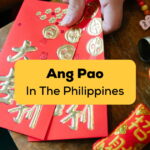
- #WalangPasok
- Breaking News
- ALS Exam Results
- Aeronautical Engineering Board Exam Result
- Agricultural and Biosystem Engineering Board Exam Result
- Agriculturist Board Exam Result
- Architecture Exam Results
- BAR Exam Results
- CPA Exam Results
- Certified Plant Mechanic Exam Result
- Chemical Engineering Exam Results
- Chemical Technician Exam Result
- Chemist Licensure Exam Result
- Civil Engineering Exam Results
- Civil Service Exam Results
- Criminology Exam Results
- Customs Broker Exam Result
- Dental Hygienist Board Exam Result
- Dental Technologist Board Exam Result
- Dentist Licensure Exam Result
- ECE Exam Results
- ECT Board Exam Result
- Environmental Planner Exam Result
- Featured Exam Results
- Fisheries Professional Exam Result
- Food Technologist Board Exam Result
- Geodetic Engineering Board Exam Result
- Guidance Counselor Board Exam Result
- Interior Design Board Exam Result
- LET Exam Results
- Landscape Architect Board Exam Result
- Librarian Exam Result
- Master Plumber Exam Result
- Mechanical Engineering Exam Results
- MedTech Exam Results
- Metallurgical Engineering Board Exam Result
- Midwives Board Exam Result
- Mining Engineering Board Exam Result
- NAPOLCOM Exam Results
- Naval Architect and Marine Engineer Board Exam Result
- Nursing Exam Results
- Nutritionist Dietitian Board Exam Result
- Occupational Therapist Board Exam Result
- Ocular Pharmacologist Exam Result
- Optometrist Board Exam Result
- Pharmacist Licensure Exam Result
- Physical Therapist Board Exam
- Physician Exam Results
- Principal Exam Results
- Professional Forester Exam Result
- Psychologist Board Exam Result
- Psychometrician Board Exam Result
- REE Board Exam Result
- RME Board Exam Result
- Radiologic Technology Board Exam Result
- Real Estate Appraiser Exam Result
- Real Estate Broker Exam Result
- Real Estate Consultant Exam Result
- Respiratory Therapist Board Exam Result
- Sanitary Engineering Board Exam Result
- Social Worker Exam Result
- UPCAT Exam Results
- Upcoming Exam Result
- Veterinarian Licensure Exam Result
- X-Ray Technologist Exam Result
- Photography
- Programming
- Smartphones
- Web Hosting
- Social Media
- SWERTRES RESULT
- EZ2 RESULT TODAY
- STL RESULT TODAY
- 6/58 LOTTO RESULT
- 6/55 LOTTO RESULT
- 6/49 LOTTO RESULT
- 6/45 LOTTO RESULT
- 6/42 LOTTO RESULT
- 6-Digit Lotto Result
- 4-Digit Lotto Result
- 3D RESULT TODAY
- 2D Lotto Result
- English to Tagalog
- English-Tagalog Translate
- Maikling Kwento
- EUR to PHP Today
- Pounds to Peso
- Binibining Pilipinas
- Miss Universe
- Family (Pamilya)
- Life (Buhay)
- Love (Pag-ibig)
- School (Eskwela)
- Work (Trabaho)
- Pinoy Jokes
- Tagalog Jokes
- Referral Letters
- Student Letters
- Employee Letters
- Business Letters
- Pag-IBIG Fund
- Home Credit Cash Loan
- Pick Up Lines Tagalog
- Pork Dishes
- Lotto Result Today
- Viral Videos

Talumpati Tungkol Sa Pamilya: Halimbawa Ng Talumpati
Halimbawa ng mga talumpati tungkol sa pamilya.
TALUMPATI TUNGKOL SA PAMILYA – Ang isang talumpati o “speech” sa Ingles, ay isang isinusulat para sa sabihin sa harap ng maliit o malaking mga tagapanood.

Kahit anong paksa ay pwede mong gawan ng talumpati. Sa artikulong ito, magbibigay kami ng halimbawa ng mga talumpati tungkol sa pamilya.
KAHALAGAHAN NG PAMILYA Marahil madalas nating nakakasama ang ating mga kaibigan sa eskwelahan man o sa opisina subalit sa ating paguwi ang pamilya ang ating nakakasama. Sila yung laging naggagabay at nag-aalala. Kasabay sa kainan, panunuod ng telebisyon, at pagtawa. Ngunit madalas hindi natin nakikita ang kanilang importansya. Gigising tayo sa umaga, mag-aaral, magtratrabaho, kakain, matutulog. Lahat tayo ay abala sa kanya kanyang laban sa buhay. Madalas hindi natin sila pinapansin. Dahil alam natin na lagi lang sila nandiyan. Diba sadyang magaan ang buhay pag alam mong nakaalalay lang sila? Kaya pahalagahan natin ang pamilya. Sila ang dahilan kung bakit ka masaya. Maikling talumpati ni ReadKnowWrite
Relasyon o Pamilya? | Marianne Sayson Marami sa atin ang nag-aasawa ng maaga dahil sa pagkabuntis ng maaga. Hindi man ako Isa sa kanila, ngunit marami pa ring pinipili ang relasyon. Sa ating kababaihan, ano ang mas mahalaga, relasyon o pamilya?
Sa ating kalalakihan, ano ang mas mahalaga, katawan o panahon? Ating pag-isipan. Kung pipiliin natin ang relasyon sa maling panahon, masama ang idinudulot.
Hindi lang masama, marami pang problema ang dumadating. Iyan ang dahilan kung bakit marami sa atin ang nagpapakamatay, naghihirap at gumagawa na masasama.
Sa maagang mag-asawa, ituro nyo sana sa inyong mga anak ang tama at hindi ang gawing kinalakhan nyo.
Ako man ay isang lalaki o babae, nasa panahon pa rin ang pag-ibig. Hindi sinasabing bawal umibig, kundi sa oras at panahon ang magtuturo sa atin kung kailan tayo dapat mag-asawa at magkaroon ng karelasyon.
Ating bulay-bulayin, “Ito na ba ang oras o panahon para ipasok ko ang ganitong relasyon? May problema ba ang susunod kapag ginawa ko ito? Bakit ako prinoprotektahan ng magulang ko na dapat sa pagtapos ko ng pag-aaral at magtrabaho bago pumasok sa alinmang relasyon sa di-kasekso?.”
Hindi rin naman masamang humanga. Ako nga ay marami nang hinahangaan kahit isang estudyante pa lamang ako.
Ang maagang pagrerelasyon iyon man ay mabuti o masama, dapat ginagawa muna ang mas makakabuting misyon sa ating buhay.
Kung pagpipiliin ako kung relasyon o pamilya, mas pipiliin ko ang pamilya. Bakit? Mas alam nila ang makakabuti sa atin.
Sa atin ngayon, lumalago ang populasyon pero ang lupa ay lumiliit. Tandaan, kung may pok may pak. Alam na ibig sabihin.
Papipiliin ko kayo, kayong lahat na pumasok o papasok pa lang sa relasyon, ano ang mas mahalaga sa iyo, ang relasyon o pamilya? Relasyon o kaibigan? Relasyon o misyon? Relasyon o edukasyon? Relasyon o sarili? Relasyon o gampanin? Inuulit ko, ngayon pa lamang.. Ang maagang pakikipagrelasyon ay ibig sabihin ay handa ka nang mag-asawa.
Tayo ay may limitasyon. Limitasyon sa lahat ng bagay. Isipin din ito, ibinigay ng Diyos hindi para abusuhin kundi gamitin sa tama. Lahat sa atin ay madalas sumasalungat sa ganitong pamantayan.
Tanungin muli ang sarili, “Makikipagrelasyon ba ako para lamang sumaya?,” hindi lahat ng relasyon ay laro. Ako ay nalulungkot dahil sa ganitong problema. Na sana ay isipin muna kung ano ba ang dapat pagpasyahan. Humingi ng tulong sa mas napagtitiwalaan mo gaya ng pamilya, kamag-anak o kaibigan na syang matapat sa iyo. Mas sasaya pa sana kung may panahon ang relasyon.
Ito ang tatlong pamantayan: ang paghanga ay ang bagay na nakikita mo gaya ng hitsura at kilos nya. ang pagkahibang ay isang uri na damdamin na inaakalang pag-ibig na. Huwag paliligaw, mawawala na lang bigla ang ganitong damdamin at malilipat sa iba. Tunay na Pag-ibig- isang uri ng pagmamahalan ayon sa nalalaman mo sa kanya.
Tandaan, panahon at oras ang magtuturo at maggagabay sa atin.
Talumpati Tungkol sa Pamilya | TakdangAralin.ph
Sa anumang oras ng pangangailangan, anumang hidwaan at hindi pagkakaunawaan mayroon tayo, sa hulit-huli ang pamilya pa rin ang ating natatanging kanlungan sa buhay.
Tayo bilang isa sa mga bansang nabibilang sa Asya ay may kaugalian at kulturang kinagisnan na may malapit na ugnayan sa bawat miyembro ng ating mga pamilya.
Hindi bago sa atin na nakakakita tayo ng mga uri ng pamilya sa ating lugar na kung saan ay halos lahat hanggang sa mga lolo, lola at mga tiyahin at iba pang kasapi ng pamilya ay kasama sa loob ng isang maliit na tahanan.
Hindi natin iniinda kahit na maliit ang tirahan at nagsisiksikan, ang mahalaga ay buo at masaya ang pamilya. Ganyan ang buhay pamilya nating mga Pilipino.
Ang ganitong uri ng sistema minsan ay may naidudulot na kabutihan, minsan naman ay may hindi magandang dulot. Maganda sa tanang, nakakabuo ito ng mahigpit na samahan at pagkakabuklod-buklod ng bawat isa.
Pero ang ganitong uri ng samahan minsan ay nagdudulot ng pagiging pala-asa ng mga iba. Hindi tayo matututo na tumayo sa ating mga sariling paa. Habang buhay tayong aasa sa lakas at tulong ng mga mahal natin sa buhay.
Ang pagkakaroon ng pamilya lalo na sa mga bago pa lamang ay hindi gawaing biro at laru–laro lamang. Kaakibat nito ay ang napakalaking obligasyon na nakaatang sa ating mga balikat.
Lalo na kapag may mga anak na tayo na umaasa sa atin. Ang pagpasok sa estadong ito ng buhay ay dapat na masusing pinag-hahandaan. Handa tayo dapat sa aspetong pang-pinansiyal at ganun rin sa emosyonal.
Walang kasing saya ang pakiramdam ng may pamilyang sarili na maituturing at maipagmamalaki mo sa buhay. Kayamanang tunay kung ito ay sabihin ng mga nakatatanda.
Ang pamilya na kahit ano pa mang uri ng bagyo ang pagdadaanan, ang samahan ay pansamantalang mabubuwag ngunit kusa pa rin itong mabubuo dahil sa masidhing pagmamahalan ng bawat isa.
Like this article? READ ALSO: Halimbawa ng talumpati: 5 talumpati tungkol sa kabataan
Leave a Comment Cancel reply
Talumpati Tungkol Sa Pamilya
Lahat ng ambisyon at pangarap natin sa buhay ay nagmumula sa ating pamilya. Sa ating magulang na palaging handa sumuporta at sa ating mga kapatid na ating mga kasangga lalo na pag sa ML :)) Sana ay magustuhan po ninyo ang aming mga inihandog sa inyo na talumpati.
by: Talumpati.info
M ayroong kasabihan na mas matimbang ang dugo kaysa sa tubig o sa ingles ay blood is thicker than water. Simula sa pagkamulat ng ating musmos na kaisipan, pamilya natin ang mga nasa tabi natin.
Andiyan sina tatay, nanay, kuya, ate at si bunso. Kahit na salat tayo sa buhay kung kumpleto, malusog, at masaya ang ating pamilya ay masasabi natin na bukod na tayong pinagpala.
Ang buhay ng isang pamilya ay sadyang puno ng mga pagsubok. Pagsubok na kung minsan ay nagpapatumba sa atin at nagiging sanhi ng pagkakawatak-watak ng bawat miyembro ng ating mag-anak.
Hindi natin maiiwasan ang pagkakaroon ng mga hindi pagkakaunawaan, kahit na sabihin pa nating iisang dugo lang ang nanalaytay ating mga ugat. Ngunit kahit ano pa man ang mangyari, sa oras ng kagipitan ay hinding-hindi natin matitiis ang tumulong sa ating mga kapamilya.
Sa bawat tagumpay na ating narating o natamasa sa ating buhay, hindi mo mararamdaman ang tunay na kasiyahan kung wala sa tabi mo ang iyong pamilya.
Mga pamilyang nagbibigay ng inspirasyon upang tayo ay magpunyagi at lumaban para makamit ang tagumpay na minimithi. Palaging may kulang sa ating pagkatao kung wala ang mga pamilya mo sa tabi mo.
Iba ang kasiyahang hatid ng mayroong pamilya na alam mo na aalalay sa iyo sa oras ng iyong pangangailangan. Masarap magkaroon ng mga taong alam mo na magmamahal at iintindi sa iyo ng walang hinihintay na anumang kapalit.
Higit sa lahat, masaya ang magkaroon ng mga taong alam mo na kahit ano pa ang mga pinagdaanan ninyo na hindi maganda noon ay sila pa rin ang iyong magiging huling kanlungan.
Mahalin natin at bigyang halaga ang ating mga pamilya, lalo na ang ating mga magulang. Dapat pagtanda nila ay ipadama natin sa kanila ang kalinga na ibinigay nila sa atin noong tayo ay mga bata pa. Sa unti-unnting pagkaubos ng kanilang mga lakas, akayin natin sila gaya ng pag-akay nila sa atin mula pa sa unang paghakbang natin.
Talasalitaan
- Matimbang – mabigat
- Musmos – bata, paslit, sanggol
- Salat – mahirap
- Akayin – alalayan
- Tagumpay – panalo
Regalo ng Maykapal
Maraming biyaya akong gustong makamit at hinihiling gabi-gabi sa aking mga panalangin. Ngunit hindi ko batid na sa lahat ng mga materyal na bagay na gusto ko, nakamit ko na pala ang pinakamalaking biyaya mula sa Maykapal.
Isang uri ng biyaya na kailanman ay hindi mo na mahahanap pa sa iba. Isang uri ng biyaya na tanging isang beses mo lang makakamit at wala nang kapalit.
Ang aking pamilya ang tinutukoy kong malaking biyaya. Biyaya ito dahil dapat kong ipagpasalamat ang kanilang presenya. Dapat kong ipagpasalamat sa Diyos na dahil sa pamilya ko ay nalalaman ko ang aking tunay na halaga.
Dahil sa aking ama, ina, mga kapatid, pati na rin ibang kadugo, ay nababatid kong ako ay mahalaga at isang nilalang na dapat mahalin.
Biyaya rin ang aking pamilya dahil sila ang pinakamatibay kong sandalan anuman ang pagdaanan ko sa buhay.
Mabigo man ako sa aking tinatahak na landas, isang tagumpay pa rin para sa kanila ang makapiling ako at magkaroon ng isang ako sa kanilang mga buhay.

Isang pagpapala ang magkaroon ng mga taong mabuti ang tingin sa iyo kahit na batid mong minsan ay hindi ka naman busilak ang iyong puso.
Regalo ng Maykapal ang aking pamilya.
Nag-iisang Sila
Sila ang aking nag-iisa. Nag-iisa dahil wala silang katulad. Nag-iisa dahil alam kong hindi na ako makahahanap ng katulad nila. Sila ang ipinadala sa akin ng Maykapal para naman maramdaman kong may nagmamahal sa akin. Sila ang nagsisilbing ebidensya na ako ay isang yamang karapat-dapat ingatan.
Ito ang aking pamilya. Sila ang aking nag-iisang sila. Pinahahalagahan ko sila katulad ng isang diyamanteng mamahalin. Ang kanilang pagmamahal at pag-aaruga ay walang kapantay.
Ang kanilang pagpapahalaga sa akin ay isang sapat nang testamentong ako ay likha ng Diyos at mayroong sariling saysay.
Sa pamilya mo mararamdaman ang tunay na pagmamahal. At balang araw, kapag nagkaroon ako ng sariling pamilya, alam kong ang pag-ibig na ibibigay ko ay katulad ng pagmamahal na nakuha ko sa aking nag-iisang sila.

Iba Pang Talumpati

Bata, Paano Ka Ginawa? by: Talumpati.info Bilang isang Kristiyano at konserbatibong bansa, sagrado at mabigat ang usapin tungkol sa abortion….

Diskriminasyon
Balat Sibuyas by: Talumpati.info Ang diskriminasyon ay walang pinipiling kasarian at edad, lahat tayo ay puwedeng maging biktima ng diskriminasyon….

Novel Corona Virus
Ang ‘Corona’ na Hindi Mo Gugustuhing Makamit by: Talumpati.info Mayroong uri ng ‘corona’ na nagdudulot ng takot sa buong mundo….

Banderang Bahaghari by: Talumpati.info Sa henerasyon ngayon, laganap ang salitang “LGBT” sa mga usap-usapan at kontrobersiya. Ito ay pinag-uusapan sa…
Leave a Comment Cancel reply

50+ Family Quotes Tagalog (Touching)

Ang pamilya ay isang tahanan ng pagmamahal, pag-unawa, at pagtanggap.
Ito ang sentro ng ating pagkatao, kung saan tayo’y nagmumula at nagiging matatag sa mga pagsubok ng buhay.
Ang pagiging malapit sa ating pamilya ay nagbibigay ng kaligayahan at sigla sa ating mga araw.
Upang ipakita ang ating pagmamahal at pagpapahalaga sa ating pamilya, narito ang 60 pinakamahusay na Family Quotes sa Tagalog na magbibigay-inspirasyon sa ating mga puso.
Mga Nilalaman
Best Family Quotes in Tagalog
“Ang pamilya ang nagbibigay-liwanag sa madilim na kalsada ng buhay.”

“Walang kasing-ligaya ang pagtanggap sa piling ng pamilya.”
“Sa bawat hirap at tagumpay, ang pamilya ang katuwang mo.”
“Ang tunay na kayamanan ay ang pagkakaroon ng masayang pamilya.”

“Ang pamilya ang pundasyon ng tunay na kaligayahan.”
“Kapag magkakasama ang pamilya, tila ba walang problema sa mundo.”
“Sa pamilya, walang iwanan, walang sukuan.”
“Ang pagmamahal ng pamilya ay walang katumbas.”
“Kahit anong mangyari, nariyan ang pamilya para sa’yo.”

“Ang pamilya ay nagbibigay-lakas sa atin sa panahon ng kahinaan.”
“Sa bawat yakap ng pamilya, ramdam mo ang pagmamahal ng Diyos.”
“Ang pagmamahalan ng pamilya ay nagbubuklod sa atin bilang isang malakas na sandatahan.”
“Ang tahanan ay hindi lang bahay, ito ay dako ng pag-ibig at pag-unawa.”

“Ang pamilya ay parang musika, kapag nagtutugma, ang ganda ng kinalalabasan.”
“Kahit anong mangyari, pamilya mo pa rin sila.”
“Sa piling ng pamilya, masaya kahit sa simpleng bagay.”
“Ang pamilya ay parang bituin sa langit, kahit saan ka man magpunta, sila’y lagi mong kasama.”

“Walang matibay na pamilya kung walang pagmamahalan.”
“Kahit gaano pa kahirap, kung may pamilya, lahat ay kakayanin.”
“Ang mga aral ng pamilya ay nagbubukas ng pinto tungo sa magandang kinabukasan.”
“Sa bawat pagsubok, naroon ang pamilya upang magbigay-lakas.”

“Ang pamilya ang sandigan sa panahon ng unos.”
“Sa oras ng kasiyahan o kalungkutan, ang pamilya ay lagi mong kasama.”
“Ang tunay na yaman ay ang pamilyang nagmamahal sa’yo.”
“Kahit anong pag-aaral ang gawin mo sa mundo, ang pamilya ay hindi matutumbasan.”
“Sa piling ng pamilya, nararamdaman ang tunay na pagmamahalan.”

“Ang pamilya ay parang kandila, nagbibigay-liwanag sa madilim na landas.”
“Ang pamilya ay ang unang paaralan ng pagmamahal at respeto.”
“Kahit anong bagyo ang humampas, ang pamilya ay magkakapit-bisig.”
“Ang tahanan ay hindi kumpleto kung wala ang pamilya.”
“Sa mga pagsubok ng buhay, ang pamilya ay ang ating tibay.”

“Ang pamilya ang pundasyon ng ating pagkatao.”
“Ang pamilya ang nagbibigay-kahulugan sa bawat pag-asa at pangarap.”
“Ang pagmamahal ng pamilya ay hindi nauubos, patuloy itong umaapaw.”
“Ang pamilya ay isa sa pinakamagandang biyaya ng ating buhay.”

“Sa bawat hakbang, ang pamilya ay nagsisilbing gabay.”
“Ang pagkakaunawaan sa pamilya ay hindi lamang salita, kundi gawa.”
“Kahit anong mangyari, ang pamilya ay nandyan upang sumuporta.”
“Ang tunay na kayamanan ay ang pamilyang nagmamahal sa’yo nang tunay.”
“Sa pamilya, tayo’y tinatanggap at minamahal kahit na may mga pagkukulang tayo.”

“Ang pamilya ay nagbibigay-inspirasyon at lakas sa ating mga pangarap.”
“Kapag may pamilya ka, hindi ka nag-iisa sa pagharap sa mundo.”
“Ang pamilya ay nagbubuklod sa atin bilang isang matibay na samahan.”
“Ang pamilya ay ang pinakamagandang regalo ng Diyos.”

“Sa pamilya, tayo’y pinapahalagahan at nirerespeto.”
“Ang pagmamahal ng pamilya ay walang kapantay.”
“Ang pamilya ay hindi lang dugo’t laman, ito ay pusong nagmamahal.”
“Kapag kasama ang pamilya, pakiramdam mo’y nasa paraiso.”
“Ang pamilya ang nagbibigay kahulugan sa ating pag-iral.”

“Walang mga salita ang kayang ilarawan ang pagmamahal ng pamilya.”
“Ang pamilya ay tulay sa pagitan ng pangarap at realidad.”
“Kahit saan pa man magtungo, ang pamilya ay nandyan upang umalalay.”
“Ang pamilya ay nagsisilbing ilaw sa madilim na landas.”

“Sa bawat pagpatak ng oras, ang pamilya ay nagpapalakas sa atin.”
“Ang pagkakaisa ng pamilya ay mas matibay kaysa sa anumang unos.”
“Sa pamilya, nararanasan ang tunay na kahulugan ng pagmamahal.”
“Kapag nagmamahal ang pamilya, walang pagod at limitasyon.”

“Ang tahanan ay puno ng pagmamahal kapag naroon ang pamilya.”
“Ang pamilya ay nagtuturo sa atin ng tunay na kahalagahan ng buhay.”
“Sa piling ng pamilya, nararanasan ang langit sa lupa.”
Bawat isa sa atin ay may iba’t ibang karanasan at alaala kasama ang ating pamilya.
Ang mga quotes na ito ay nagpapaalala sa atin kung gaano kahalaga ang mga ito sa ating buhay.
Hindi lang sa panahon ng kasiyahan, kundi pati na rin sa mga pagsubok, naroon ang pamilya upang magbigay-lakas, inspirasyon, at pagmamahal.
Basahin din:

- High School
- You don't have any recent items yet.
- You don't have any courses yet.
- You don't have any books yet.
- You don't have any Studylists yet.
- Information
Family-DAY- Script
School activity (p0p9lk), st. catherine's college, students also viewed.
- Crinkles - luh
- Infography part 2 - none
- Heart of clear springs - sweet
- Infographic - done
- Movie review NON Fiction
Related documents
- Clean the area for another experiment
- Sanaysay - reflection
- Filipino climate change
- Kagustuhan and pangangailangan
- Document 1gac112
- Q1 Earth AND LIFE Science Curri MAP
Preview text
St. isidore catholic school.
Poblacion 3, Cuenca, Batangas Tel. # (043) 342-1479 * Email: sics1992@yahoo
SICS 30th Founding Anniversary February 17, 2021 VIRTUAL FAMILY DAY
Theme: SICS @ 30: “Three Decades of Fulfilling the Mission as Strong Foundation of Faith and Excellence”
Speaker 1: Good morning everyone, we welcome you all to the 1st Virtual Family Day, as part of the 30th Founding Anniversary of our dear school, St, Isidore Catholic School with the theme, SICS @ 30: “Three Decades of Fulfilling the Mission as Strong Foundation of Faith and Excellence”
Speaker 2: Good morning Ms. So today, we are going to celebrate the meaning of family. Before we start let us acknowledge the presence of each family who are with us today via Zoom.
Speaker 1: They say that family is the basic unit of the society and it plays a vital role in the character development and faith formation of each and every one of us. So for you Ms., what is your concept of Family?
Speaker 2: “Family means having someone to love you unconditionally in spite of your shortcomings and flaws. ( Adlib)
Speaker 1: So now to officially start our program, may we request everyone to stand and feel the presence of our Almighty God. Let us have Lyneth Meriel Macaraig of Grade 7- St. Luke to lead our prayer and to ask for blessing for this event. Opening Prayer
Speaker 2: And for our opening remarks, let us hear from Aubrey Ann Comia of Grade 8- St. Paul. Opening Remarks Speaker 1: Thank you for that wonderful welcome speech, Aubrey. That is true that family is not only bounded by blood ties, we can also find family within our friends and acquiantances. And now let us have our beloved principal, Dr. Coarzon M. Flores for her inspirational message. Inspirational Message
Speaker 2: Family is the foundation of all. We may have differences and we may experience problems along the way but still, we turn to our family and see them as our source of strength and inspirations to pursue in life. As a tribute to each family of our dear Isidoreans, let us all watch the the Red Carpet Welcome video prepared for each grade level together with their family.
Red Carpet Welcome
Speaker 1: That was indeed a wonderful presentation of each family and we have witnessed how beautiful each of them was.
And at this juncture, let us loosen up a bit and unleash our inner talents. May we request everyone to join us in Groove It: The Family Dance Party as we dance and groove in this one of a kind Zumba dance party.
Speaker 2: They say that we genetically acquired our skills and talents from our ancestors and in some ways, we shared the same values and characteristics with our family. As a result, let us all witness the different performances of our dear Isidoreans together with their family members. Let us all watch this! Virtual Talent Show
Speaker 1: Thank you for that that awe-mazing performances! We have witnessed diverse and multi-lingual showcase of talents of our dear Isidoreans and our dear Parents. At this point, kindly get your materials for our Family Handprint Tree. This Family Handprint Tree will be a reminder for us that we are fortunate to have our family by our side who are willing to sacrifice for us and love us unconditionally. Family Handprint Tree Materials: canvas, paint, paint pallet for mixing part, small container to rinse brush off Mechanics:
- Start by painting the trunk and branches.
- Roll a paint on to your hands. Roll a moderate layer of paint onto hands and carefully press hand on one of the branches.
- Roll new paint on with each handprint.
Speaker 2: And now we have come to our end, indeed it was a wonderful event and we cannot thank you enough for being with us today. We would like to express our gratitude to each and every one of you especially to our dear Isidoreans and their families for spending your precious time with us despite the busy schedule and tremendous work you have. Thank you!
Speaker 1: “Think of your family today and every day thereafter, don’t let the busy world of today keep you from showing how much you love and appreciate your family.” – Josiah. Therefore, let us have Miguel Maranan of Grade 9- St. John Paul II for his closing remarks.
Speaker 2: Lord, we offer you our overflowing gratitude for all the graces that you showered upon us. This event would not be possible without your loving presence and guidance. To help us offer our prayers, let us have Myk Alferius Vergara of Grade 10- St. Joseph for his closing prayer.
- Multiple Choice
Course : School Activity (p0p9Lk)
University : st. catherine's college.

- More from: School Activity p0p9Lk St. Catherine's College 21 Documents Go to course
Speech Repository
5 Short Speeches about Family
Family is the cornerstone of our lives, shaping who we are and how we view the world. Whether it’s the family we’re born into or the one we create, these relationships form the foundation of our experiences, memories, and values. They’re the source of our greatest joys and, sometimes, our deepest challenges.
This article explores five speeches that capture the essence of family in its many forms. From heartwarming tales of togetherness to reflections on the connections of familial bonds, these speeches offer a glimpse into the universal experiences that connect us all. Ready to discover the power of words in expressing the importance of family?
Short Speeches about Family
Family speeches can be powerful tools for expressing love, gratitude, and the significance of our closest relationships. Here are five speeches that capture different aspects of family life.
1. The Ties That Bind
Family isn’t just about blood relations. It’s about the connections we forge, the memories we create, and the unconditional love we share. Today, I want to talk about the invisible threads that weave us together, creating a collection of support, laughter, and sometimes, yes, a little bit of chaos.
Think back to your childhood. Those family dinners where everyone talked over each other? Or those long car rides with singalongs and squabbles in the backseat? These moments, as ordinary as they seem, are the building blocks of our family stories.
But family isn’t always easy, is it? We’ve all had those moments when we’ve wanted to slam a door or walk away. Yet, it’s in these challenging times that the true strength of family shines through. It’s the hand on your shoulder when you’re down, the voice on the phone when you need advice, and the unwavering belief in you when you’ve lost faith in yourself.
As we grow older, our understanding of family evolves. We realize it’s not just about sharing a last name or DNA. It’s about choosing to stand by each other, day after day. It’s about creating a safe haven where we can be our true selves, flaws and all.
In today’s fast-paced world, it’s easy to take our families for granted. We get caught up in our busy lives, forgetting to pause and appreciate the people who’ve known us the longest and love us the most. So today, let’s make a promise to ourselves. Let’s commit to nurturing these precious bonds.
Call that sibling you haven’t spoken to in a while. Sit down with your parents and really listen to their stories. Hug your children a little tighter and tell them how much they mean to you. Because at the end of the day, it’s these connections that give our lives meaning and purpose.
Family is our anchor in the storm, our cheerleaders in victory, and our comfort in defeat. It’s the place where we learn to love, to forgive, and to grow. So let’s celebrate the ties that bind us, the love that sustains us, and the family that shapes us. Because in the grand story of our lives, family isn’t just a chapter – it’s the entire book.
— END OF SPEECH —
Commentary: This speech explores the multifaceted nature of family relationships, touching on both the joyful and challenging aspects. It encourages listeners to appreciate and nurture their family bonds. This would be suitable for a family reunion, a wedding reception, or any gathering where family is being celebrated.
2. The Family We Choose
They say blood is thicker than water, but sometimes the family we choose is just as vital as the one we’re born into. Today, I want to talk about the beautiful collection of relationships that make up our chosen families.
Think about the friends who’ve stood by you through thick and thin. The colleagues who’ve become more than just coworkers. The neighbors who always have your back. These people, who have no obligation to love us but choose to anyway, are the family we create for ourselves.
Our chosen family often fills the gaps that our blood relatives can’t. They’re the ones who celebrate our quirks, support our dreams, and love us for who we are, not who they think we should be. They’re the friends who become sisters, the mentors who become father figures, and the partners who become our home.
Building a chosen family takes time, effort, and vulnerability. It means opening your heart to new connections and nurturing those relationships with care and intention. It’s about showing up for game nights, being there for the tough conversations, and creating traditions that become as cherished as any passed down through generations.
But here’s the beautiful thing about chosen family – it doesn’t diminish the love we have for our blood relatives. Instead, it expands our capacity for love and connection. It teaches us that family isn’t limited by genetics or legalities. It’s defined by love, trust, and mutual respect.
So, to all the friends who’ve become family, thank you. Thank you for choosing us, for standing by us, and for creating a safe space where we can be our authentic selves. You’ve enriched our lives in ways we never thought possible.
And to those still searching for their tribe, don’t give up. Your chosen family is out there. Keep your heart open, be the friend you wish to have, and trust that the right people will come into your life at the right time.
Let’s raise a toast to the family we choose – the friends who become siblings, the mentors who guide us, and the loved ones who make life’s journey so much richer. May we always cherish these bonds and continue to build families of the heart.
Commentary: This speech celebrates the concept of chosen family, emphasizing the importance of non-blood relationships. It’s particularly fitting for a gathering of close friends, a chosen family celebration, or an event honoring mentors and influential figures in one’s life.
3. Generational Wisdom: Honoring Our Roots
Family is like a tree. Our ancestors are the roots, providing a foundation and nourishment. Our parents and grandparents are the trunk, strong and supportive. And we, along with our children, are the branches and leaves, reaching out into the world while staying connected to our core.
Today, let’s talk about the importance of honoring our roots and the generational wisdom that flows through our family tree.
Each generation carries with it a wealth of knowledge, experiences, and lessons learned. Our grandparents and great-grandparents lived through times vastly different from our own. They faced wars, economic upheavals, and societal changes that shaped the world we live in today. Their stories, if we take the time to listen, are filled with valuable insights.
Those family recipes passed down through generations? They’re more than just instructions for delicious meals. They’re a connection to our past, a taste of history, and a reminder of the love that’s been poured into nourishing our families for decades.
Or think about the family heirlooms sitting in your home. That old watch, those vintage photographs, or the handmade quilt – each item tells a story of resilience, creativity, and love. They’re physical reminders of the shoulders we stand on and the legacy we’re part of.
But generational wisdom isn’t just about the past. It’s a living, breathing entity that evolves with each new addition to the family. As we honor the wisdom of our elders, we also have the responsibility to contribute our own experiences and insights to this ever-growing pool of family knowledge.
In today’s fast-paced world, it’s easy to dismiss the “old ways” as outdated or irrelevant. But there’s immense value in bridging the generational gap. When we create spaces for different generations to interact, share stories, and learn from each other, we strengthen our family bonds and enrich our collective wisdom.
So, how can we honor our roots and keep this generational wisdom alive?
Start by asking questions. Sit with your grandparents or older relatives and listen to their stories. Document family histories, not just names and dates, but the real, human experiences that shaped your family. Create opportunities for different generations to spend time together, whether it’s through family reunions, regular dinners, or even virtual gatherings.
Teach the younger generation about their heritage. Share the stories, customs, and traditions that have been passed down. Help them understand where they come from and the long line of resilient, loving individuals who paved the way for their existence.
And for the younger generations, bring your unique perspectives to the table. Share your experiences, your challenges, and your triumphs. Your insights are valuable additions to the family wisdom, bridging the past with the present and future.
As we honor our roots and embrace generational wisdom, we create a sense of continuity and belonging. We understand that we’re part of something bigger than ourselves – a living, breathing family legacy that spans generations.
So let’s cherish the wisdom of our elders, celebrate the insights of youth, and continue to grow our family tree. May we always keep in mind that our roots give us strength, our trunk provides support, and our branches allow us to reach for the sky while staying connected to what matters most – family.
Commentary: This speech emphasizes the importance of intergenerational connections and the value of family history. It would be appropriate for a family reunion, a milestone birthday celebration for an older family member, or any event where multiple generations are present and family heritage is being honored.
4. The Evolving Nature of Family
What does family mean in the 21st century? It’s a question that doesn’t have a simple answer, because family, like society itself, is constantly changing. Today, let’s explore the changing face of family and celebrate the beautiful diversity of modern family structures.
Gone are the days when family was narrowly defined as a married couple with 2.5 kids and a white picket fence. Today’s families come in all shapes and sizes. We have single-parent families, blended families, same-sex parent families, multigenerational households, and families created through adoption or fostering. Each of these family structures is unique, valid, and worthy of celebration.
The traditional nuclear family hasn’t disappeared, but it’s no longer the only model. And that’s something to be excited about. This diversity reflects our growing understanding that love, support, and connection – the true essence of family – aren’t limited to any one family structure.
Consider the single mom raising her kids with the help of a tight-knit community. Or the two dads figuring out the joys and challenges of parenthood. Think about the grandparents stepping in to raise their grandchildren, or the foster parents opening their hearts and homes to children in need. These families may not fit the traditional mold, but they’re bound by the same love, commitment, and mutual support that define any family.
Technology has also played a role in reshaping our concept of family. With video calls and social media, we can maintain close relationships with family members across the globe. Distance is no longer a barrier to being an active part of our loved ones’ lives. We can share daily moments, celebrate milestones, and offer support, all with the click of a button.
But with these changes come new challenges. As family structures diversify, we must ensure that our laws, policies, and societal attitudes keep pace. We need to create a world where all families are recognized, respected, and supported, regardless of their composition.
For those in non-traditional families, it’s important to keep in mind that your family is no less real or valid than any other. The love you share, the support you provide, and the bonds you’ve formed are what truly define a family.
And for all of us, it’s important to broaden our understanding of what family means. Let’s move beyond outdated stereotypes and embrace the rich variety of modern family life. When we encounter families different from our own, let’s approach them with openness, respect, and a willingness to learn.
As we deal with this evolving landscape, let’s hold onto the core values that have always defined family: love, support, belonging, and mutual care. These are the threads that weave us together, regardless of how our families are structured.
So here’s to the changing face of family. To the single parents, the same-sex couples, the blended families, and everyone in between. To the families formed by blood, by law, and by choice. You are all valid, you are all important, and you all contribute to the rich diversity that makes our society stronger.
May we continue to expand our definition of family, creating a world where everyone feels seen, accepted, and celebrated. Because at the end of the day, family isn’t about fitting a mold – it’s about creating a home where love resides, memories are created, and everyone belongs.
Commentary: This speech addresses the evolving nature of family structures in modern society, emphasizing inclusivity and acceptance. It would be well-suited for a diversity and inclusion event, a community gathering, or an educational setting where family dynamics are being discussed.
5. The Power of Family Resilience
Family isn’t just about the good times. It’s about standing together when life throws its curveballs. Today, let’s talk about something that every family faces at some point: adversity. More specifically, let’s explore the incredible power of family resilience.
Resilience is like a muscle. It grows stronger with use, and nowhere is this more evident than within the family unit. Think back to a time when your family faced a significant challenge. Maybe it was a health crisis, a financial setback, or the loss of a loved one. In those moments, you likely discovered a strength you never knew you had.
Family resilience isn’t about avoiding hardship. It’s about how we come together, adapt, and grow stronger in the face of difficulties. It’s the late-night conversations around the kitchen table, brainstorming solutions. It’s the shared tears and hugs that remind us we’re not alone. It’s the small acts of kindness and support that add up to create an unbreakable bond.
One of the beautiful things about family resilience is that it’s a team effort. Each family member brings their unique strengths to the table. Maybe one person is great at problem-solving, while another excels at providing emotional support. Perhaps the youngest members bring a sense of hope and optimism that lifts everyone’s spirits. Together, these individual strengths create a powerful force that can weather any storm.
But resilience isn’t just about getting through tough times. It’s also about how we grow and learn from these experiences. Resilient families use challenges as opportunities for growth. They develop better communication skills, learn to appreciate each other more deeply, and gain confidence in their ability to handle whatever life throws their way.
So, how can we build and strengthen our family’s resilience?
First, foster open and honest communication. Create an environment where everyone feels safe sharing their thoughts and feelings, even when they’re difficult. This openness allows you to address challenges head-on, as a united front.
Second, maintain family rituals and routines, even in times of stress. Whether it’s family dinners, game nights, or holiday traditions, these rituals provide a sense of normalcy and connection that can be incredibly comforting during turbulent times.
Third, cultivate a positive outlook. This doesn’t mean ignoring problems or pretending everything is fine. Instead, it’s about finding glimmers of hope and focusing on what you can control. Celebrate small victories and find moments of joy, even in difficult circumstances.
Fourth, be flexible and willing to adapt. Resilient families understand that sometimes plans need to change. They’re able to pivot, try new approaches, and adjust their expectations when necessary.
Lastly, don’t be afraid to seek help when you need it. Reaching out to extended family, friends, or professionals isn’t a sign of weakness. It’s a sign of strength and wisdom. It shows that you value your family’s well-being above all else.
Every family faces challenges. What sets resilient families apart is how they face these challenges together. They emerge from difficult times not just intact, but stronger, closer, and more prepared for whatever the future may hold.
So, to all the families out there dealing with tough times: You are stronger than you know. The challenges you face today are shaping you into a more resilient unit. Keep supporting each other, keep communicating, and keep believing in your collective strength.
And for those in calmer waters right now: Use this time to build your resilience muscles. Strengthen your bonds, develop your communication skills, and create a supportive family culture. Because when challenges do arise – and they will – you’ll be ready to face them together.
Family resilience isn’t about being perfect or unbreakable. It’s about bending without breaking, adapting to change, and coming out stronger on the other side. It’s a testament to the enduring power of family love and the incredible strength we find when we stand together.
So here’s to resilient families everywhere. May your bonds grow stronger with every challenge you face, and may you always find strength in each other. Because together, there’s nothing your family can’t overcome.
Commentary: This speech focuses on the concept of family resilience, offering insights and strategies for families to grow stronger through adversity. It would be appropriate for a family therapy or counseling setting, a support group for families facing challenges, or a seminar on family dynamics and coping strategies.
Family speeches serve as powerful reminders of the bonds that tie us together. Whether delivered at a joyous celebration or during challenging times, these words have the potential to strengthen connections, heal rifts, and create lasting memories.
The five speeches we’ve explored touch on different aspects of family life. From the traditional to the chosen, from honoring our roots to embracing change, and from celebrating diversity to building resilience, each speech highlights the many ways family shapes our lives and identities.
Filipino Family Blog
Search this blog, tagalog poem for family: heartwarming tula para sa pamilya ✅, poem for family.

Poem for Family Word List in Tagalog
In Tagalog, Poem for Family is called Tula Para sa Pamilya .
In this post, you will learn the vocabulary words related to Poem for Family and some example phrases.
Poem for Family Vocabulary Words
Listed below are common words for Poem for Family, and related concepts:

Isang Tula Para Sa Pamilya
A family is the most basic unit that makes up a society. A nuclear family is consisting of a father, a mother, and the children. An extended family is consisting of the main family unit including the grandparents, uncles, aunties, cousins, and other distant relatives. Here is a simple poem about a family or pamilya .
Ang pamilya ay ang pangunahing pundasyon ng isang komunidad. Ang isang pamilya ay binubuo ng isang ama, isang ina, at ng kanilang mga anak. Sila ay pinagbubuklod ng pagmamahalan, respeto, pagkakaisa, at pagdadamayan.
Tula Para Sa Pamilya
Ang isang pamilya, sadyang mahalaga
Para sa payapang lipunan at buong bansa.
Pamilya ang simbolo ng pagkakaisa,
Tahanan ng pusong may isang lahi't salita.
Ang aking ama, kahit matanda na,
Haligi ng tahanan ang tawag sa kanya.
Nirerespeto at tinitingala ng kapwa,
May takot sa Panginoon, siya'y pinagpala.
Ang aking ina, Filipinang maganda,
Ilaw ng tahanan, ngiti niya'y naaalala.
Mapagpakumbaba, maamo, at mapagparaya,
Ani niya'y nasa Diyos and awa, nasa tao ang gawa.
Ang aking mga kapatid, dalawa lang sila,
Ang isa'y tahimik, ang pangalawa'y isa ring makata.
Kinabukasa'y puno ng sigla at pag-asa,
Trabaho dito, doon, gabi hanggang umaga.
Ako ang panganay na anak sa aming pamilya,
Lumayo, humiwalay, at naghanap ng asawa.
Biniyayaan ng dalawang anak na banyaga,
Pero sila'y Filipino sa puso at diwa.
Kahit na mawalay ka sa iyong pamilya,
Huwag malumbay at mag-alala.
Manalangin at ilagay sa Diyos ang tiwala,
Siya ang aakay sa iyo sa daan na tama.
Huwag kang matakot magkaroon ng sariling pamilya,
Suporta ng iyong ama, ina, at mga kapatid ay kasama.
Tutulong at dadamay sa iyo kapag ika'y nadapa,
Bumangon at tumayo, magsumikap ka.
Thank you for reading! We hope you enjoyed this poem about family and learned some new vocabulary words in Tagalog.
Now, have fun and try writing your own poem about family! Use the vocabulary words you learned from this post and express your feelings and thoughts about your loved ones.
Don't be afraid to get creative and make it your own. You can write about your parents, siblings, grandparents, or even your favorite family traditions.
TAGALOG LANG
Learn Tagalog online!
Examples of Tagalog Sentences (Family)
Mag-asawa sila. They’re husband and wife. They’re a married couple.
Magkapatid sila. They are siblings. = They are brothers. = They are sisters. = They are brother and sister.
Mga kamag-anak mo ba sila? Are they your relatives?
Mga pinsan ko sila. They are my cousins.
Mag-pinsan kami. We’re cousins.
Sino ang panganay? Who is the oldest [sibling]?
Ako ang bunso. I am the youngest [sibling].
Ay, ang apo ko! Oh, my grandchild!
Malaki ba ang pamilya mo? Is your family large?
Medyo. Anim kaming magkakapatid. Sort of. There are six of us children.
Masaya at maingay kung malaki ang pamilya. It’s fun and noisy when the family’s big.

Leave a Reply Cancel reply
Your email address will not be published. Required fields are marked *
27+ Easy Tagalog Family Vocabulary
- , June 20, 2024

When it comes to Filipinos, the family is the most important thing. If you are interested in impressing your Pinoy friends, colleagues, and special someone, then make sure not to miss out on this comprehensive list of Tagalog family vocabulary terms that you will encounter in day-to-day settings. Ever heard someone say lola, ina, ama, or kuya and ate? Get to know what these words about Tagalog Family vocabulary mean today!
And perhaps this is why you landed on this page today. You probably know of a Filipino who is interested in creating a fun relationship. Well, you came to the right place! In today’s post, we will learn the Tagalog language related to families, and I will also share with you some truths about a typical Filipino household . If that rocks your boat, off we go!
Table Of Contents
Tagalog Family Vocabulary
Here’s a comprehensive list of all the Tagalog terms that you should learn, especially if you want to impress native speakers. Note that by tradition, Filipinos love being called by these labels rather than their first name.
In fact, even if they are not your real kuya (brother) or ate (sister), you can use any of these as a sign of respect. For example, if you want to buy off of the streets some street food sold by an old lady, you can simply say paibili po (English translation: can I buy one?) and add the word nanay (mom) or ate to sound respectful in Tagalog .
You can also try the Ling app to learn Tagalog in a fun and easy way. So, ready to learn more? Read and practice the Tagalog labels below.
What Are The Tagalog Phrases Often Used By Filipino Families?
Filipino families have their own special way of talking! It’s warm, sometimes funny, and always full of love. Inside their homes, certain Tagalog family vocabulary and phrases are as common as rice on the table. Let’s look at some you’ll hear often:
- Kain na! (Let’s eat!): No matter where you are in the house, when you hear this, you know it’s time to drop everything. Food is ready, and meals are a family event.
- Halika na! (Come here!): Whether it’s to eat, have a family meeting, or just cuddle, this call to gather is hard to resist.
- Ingat ka! (Take care!): Said with a hug and a kiss, this is how Filipinos say goodbye to loved ones, even for short trips.
- Paalam (Goodbye): But it’s never a simple goodbye! Filipinos often add reminders like “Text when you arrive!” or “Don’t forget your jacket!”
- Anak (Child/My child): Parents use this sweet word for their own children, but also younger relatives or even close family friends.
- Mahal kita (I love you): Filipinos might not say this as often as some cultures, but when they do, it comes from the heart.
- Kamusta ka? (How are you?): This isn’t just about your day. It’s an invitation to share your stories, good and bad.
- Tulog na (Time to sleep): Heard at the end of a long day, it’s a signal to rest and get ready for another day together.
- Salamat (Thank you): For big things or small acts of kindness, Filipinos always remember to say thanks.
In every Kain na! and Mahal kita , you’ll feel the special bond Filipino families have. Each phrase is special because of that love. Next time you’re with a Filipino family, listen closely – you’ll hear their culture in every word!

Filipino Household: Who Are The Typical Family Members?
Ever heard of the word pamilya ? This is a Tagalog word that refers to family, and this remains to be one of the terms that do not have direct Tagalog synonyms.
You see, the Philippine tradition when it comes to families is very much different from what you can see from the Western concept. Usually, when a member reaches 18 years old, Western families expect their child to move and find their own place.
Is Staying At Home Normal To Filipinos?
For Filipinos, it is always suggested that you stay with your family until you are married. Though this tradition still exists today, a huge number of people are slowly adopting the Western concept and have moved to a place that is much nearer to their workplace.
Why do they choose to stay? It’s a cultural thing. In the Philippines, staying with your family until you’re married is a tradition and a way of life that fosters strong familial bonds and ensures everyone looks out for each other.
And if ever you get invited to attend a traditional family party or any of the Philippine festivals , depending on the place, do not be surprised if you meet not just the parents but the whole clan!
This is because the family circle often includes everyone, from close relatives to those slightly more distant. It’s a demonstration of the Filipino value of unity and togetherness, showing how deeply interconnected and supportive their community is.
Who Lives Inside A Filipino House?
You see, the country has a very strong familial relationship, to the point that it is possible to find almost three generations living in just one house or compound! In fact, some streets are even named after the popular families who reside in that certain place.
Given the household and room structure in the Philippines , you can also expect to hear that kids have grown up not just with the help of the mother and father but with the entire family! Isn’t that exciting?
So, who shares the same roof? It’s common to find parents, grandparents, siblings, and sometimes even aunts, uncles, and cousins living together. This arrangement creates a nurturing environment where values, traditions, and familial bonds are passed down through generations, enriching the lives of all members.

What Are The Filipino Family Values And Traditions?
In the Philippines, family is everything. They have many values and traditions passed down from their ancestors, and Filipinos live with them every day. From the way they say mano po to big family parties at Christmas, everything is about bringing the family closer together.
Filipino culture is a mix of their own traditions and influences from Spain and even America! This makes them unique. Respect, working together, helping your neighbors… these are the most important things. Let’s take a closer look:
- Respect for Elders : Filipinos have deep respect for their elders. You see this in pagmamano , where a younger person takes an older person’s hand and touches it to their forehead.
- Close Family Ties : Filipino families aren’t just parents and kids. They include aunts, uncles, cousins, everyone! Sometimes, many relatives live together, which shows how important it is to support each other.
- Bayanihan Spirit: This means everyone in the community works together. In the past, they might literally carry a family’s house to a new place! Now, it means anyone helping out someone in need.
- Hospitality: Filipino families are famous for their warm hospitality, treating guests like they’re part of the family! Sharing food and opening their homes comes from the heart.
- Strong Religious Faith : Many Filipinos are Catholic. Church is a big part of daily life and celebrations! This shapes many family traditions, like going to Mass on Sundays and having big feasts for religious holidays.
- Importance of Celebrations : Filipinos love any excuse to celebrate! Birthdays, graduations, and especially Christmas and New Year mean big feasts, music, dancing, and lots of family time.
- Education as a Priority : Filipino families believe education is the key to a better future. Parents often make sacrifices to make sure their children get a good education.
- Filial Piety : Children are taught to support and care for their parents when they get old. This way, elderly family members are always loved and respected.
- Karaoke as a Family Bonding Activity : Okay, karaoke might not be a super old tradition, but now it’s a huge part of family fun! It shows how Filipinos love music, love to celebrate, and love being together.
Learning these values and traditions is a wonderful way to start understanding Filipino families , but it’s only the beginning. As you explore Tagalog words for family members, you’ll learn deeper connections. You’ll see how even simple words like ate or kuya carry warmth and respect that reflect the strong bonds that define Filipino families.
How Do You Say Family In Tagalog?
More Tagalog Family Vocabulary For Practice
Ready for more Tagalog words? If you’re eager to impress your close family friends and your loved ones, take a look at this Tagalog vocabulary list below:
Common Questions For Tagalog Family Vocabulary
What are filipino endearments for their parents and family.
Filipinos love creating cute names for their loved ones. For parents, it’s the same. Although some of the words mentioned below may seem like ordinary Tagalog words, these can be used with a bit of sweet or caring intonation when you are referring to your close family relatives. Here are some words that you can practice with your Filipino family:
- Mahal – my love
- Anak – my child
- Inay – Mother
- Itay – Father
- Bunso – youngest of the family
Are There Other Words Used By Filipinos To Call Their Family Members?
Yes, many Filipinos will either use Spanish or the Hokkien (Chinese) language when referring to their family members. People often remember that Hokkien is a dialect, but it has evolved into its own separate language, just like what happened with the Tagalog language history . This is especially true for those people who have developed their vocabulary outside the Fu-Jian Province in China.
For Hokkien Chinese, these are some of the colloquial words for Filipino families:
- ditse – second eldest sister
- diko – second eldest brother
- sangko – third eldest brother
- sanse – third eldest sister
- ingkong – grandfather
- siyaho – elder sister’s husband
- inso – eldest brother’s wife
For the Spanish language, check out these family words:
- Abuelo – grandfather
- Abuela – grandmother
- Unica iha – first daughter/only daughter
- Unico iho – first son/only son
- Tiyo – uncle
- Tiya – aunt
How Big Is A Typical Filipino Family?
Filipinos are typically huge families with numbers like four to five or even up to a ten-digit number. However, nowadays, due to family planning, many Filipinos decide to only have two children or not have children at all. Some families decide to have fur babies instead.
The Heart Of Filipino Families
Learning Tagalog family words, it’s like… you get a special key! This key opens the door to Filipino hearts. Each word – magulang, anak – tells a little bit about how Filipinos love their families. It’s about respect, being close, and always being there for each other. This is more than just speaking; it’s like feeling what Filipino family means.
Imagine you call someone ate or kuya , and right away, you feel like you belong. That’s how these words work! They make friendship easy; they make you feel welcome. So keep learning, try using this Tagalog family vocabulary, and let them show you something special. In the Philippines, being a friend means you’re like family, too.
10,000+ people use the Ling app every day to learn languages!

- Essential vocabulary and useful phrases in bite-sized lessons
- Realistic dialogues for comfortable conversations
- Listening and speaking practice with native speaker audio
- Culture and grammar notes for extra context
- Fun games for vocabulary review
- Finger-tracing exercises to practice writing
- Daily streaks and badges to keep you motivated
- Over 40+ Asian and Eastern European languages unlocked
Leave a Reply Cancel reply
You must be logged in to post a comment.
Discover more

People also read

8 Amazing Filipino New Year Traditions And Superstitions

#1 Best Guide: Caroling In The Philippines

Your #1 Guide To The Most Wonderful Christmas In Philippines

Tagalog Christmas Greetings: 14 Easy Phrases

12 Easy Words About The Tagalog Zodiac Signs

#1 Best Guide: Ang Pao In The Philippines
Southeast asia, east europe.
© 2024 Simya Solutions Ltd.

IMAGES
VIDEO
COMMENTS
English to Tagalog. English-Tagalog Translate. Maikling Kwento. Exchange Rate. EUR to PHP Today. Pounds to Peso ... Family (Pamilya) Life (Buhay) Love (Pag-ibig) School (Eskwela) Pick Up Lines Tagalog. Recipe. Pork Dishes ... TALUMPATI TUNGKOL SA PAMILYA - Ang isang talumpati o "speech" sa Ingles, ay isang isinusulat para sa sabihin sa ...
M ayroong kasabihan na mas matimbang ang dugo kaysa sa tubig o sa ingles ay blood is thicker than water. Simula sa pagkamulat ng ating musmos na kaisipan, pamilya natin ang mga nasa tabi natin. Andiyan sina tatay, nanay, kuya, ate at si bunso. Kahit na salat tayo sa buhay kung kumpleto, malusog, at masaya ang ating pamilya ay masasabi natin na bukod na tayong pinagpala.
Home » 50+ Family Quotes Tagalog (Touching) Posted in Quotes. 50+ Family Quotes Tagalog (Touching) Posted by By Sanaysay Editorial Team November 20, 2024. Ang pamilya ay isang tahanan ng pagmamahal, pag-unawa, at pagtanggap. Ito ang sentro ng ating pagkatao, kung saan tayo'y nagmumula at nagiging matatag sa mga pagsubok ng buhay.
Script for family day st. isidore catholic school poblacion cuenca, batangas tel. (043) email: sics 30th founding anniversary february 17, 2021 virtual family. ... Thank you for that wonderful welcome speech, Aubrey. That is true that family is not only bounded by blood ties, we can also find family within our friends and acquiantances. ...
The Tagalog word for 'speech' is talumpati. On this page, you will find a speech in Tagalog, a speech in Filipino, and a speech in English. The two official languages of the Philippines are Filipino and English. Halimbawa ng Talumpati. Below is great example of a traditional speech in Tagalog.
Commentary: This speech celebrates the concept of chosen family, emphasizing the importance of non-blood relationships. It's particularly fitting for a gathering of close friends, a chosen family celebration, or an event honoring mentors and influential figures in one's life. 3. Generational Wisdom: Honoring Our Roots. Family is like a tree.
Poem for Family Word List in Tagalog. In Tagalog, Poem for Family is called Tula Para sa Pamilya. In this post, you will learn the vocabulary words related to Poem for Family and some example phrases. Poem for Family Vocabulary Words. Listed below are common words for Poem for Family, and related concepts: #
Examples of Tagalog Sentences (Family)... Basic words and phrases for communicating in the Filipino language.
"Ohana means family, and family means nobody is left behind or forgotten"~ A short speech conveying on giving importance and dealing problems that can occur ...
When it comes to Filipinos, the family is the most important thing. If you are interested in impressing your Pinoy friends, colleagues, and special someone, then make sure not to miss out on this comprehensive list of Tagalog family vocabulary terms that you will encounter in day-to-day settings. Ever heard someone say lola, ina, ama, or kuya and ate?